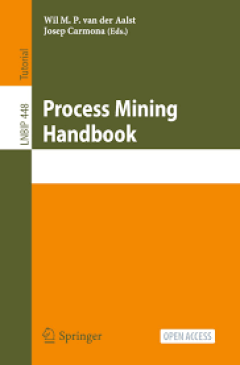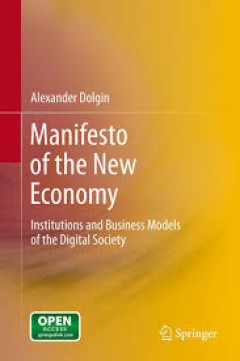Filter by

Built on Value: The Huawei Philosophy of Finance Management
This book presents the concept of value as the central component to success and longevity of the global ICT industry player, Huawei. It provides examples of how Huawei focuses on customers to pursue sustainable and profitable growth rather than focusing on capital market valuation which is a familiar scenario among Western companies. It is the business departments that are the creators of valu…
- Edition
- 1
- ISBN/ISSN
- 9789811375071
- Collation
- XXXVI, 456 hlm; ill., lamp.,
- Series Title
- -
- Call Number
- -

Software Business: 14th International Conference, ICSOB 2023, Lahti, Finland,…
This open access book constitutes the refereed proceedings of the 23rd International Conference on Software Business, ICSOB 2023, which was held in Lahti, Finland, during November 27–29, 2023. The special theme of ICSOB 2023 was Digital Agility: Mastering Change in Software Business and Digital Services. The 27 full papers and 8 short papers presented in this book were carefully reviewed and…
- Edition
- -
- ISBN/ISSN
- 9783031532276
- Collation
- XVIII, 514
- Series Title
- 500
- Call Number
- -

Process Mining Handbook
This is an open access book. This book comprises all the single courses given as part of the First Summer School on Process Mining, PMSS 2022, which was held in Aachen, Germany, during July 4-8, 2022. This volume contains 17 chapters organized into the following topical sections: Introduction; process discovery; conformance checking; data preprocessing; process enhancement and monitoring; …
- Edition
- -
- ISBN/ISSN
- 978-3-031-08848-3
- Collation
- X, 503
- Series Title
- -
- Call Number
- -

Der weite Weg zum Bürgergeld
Der Open-Access Band diskutiert das neue Bürgergeld in seiner sozialpolitischen Geschichte und Bedeutung. Das seit 2023 in Deutschland geltende „Bürgergeld“ sollte die unbeliebte Sozialleistung „Hartz 4“ ablösen, zugleich aber auch (noch) kein „Grundeinkommen“ sein. Es war ein weiter Weg zum Bürgergeld, und für viele Menschen ist der Weg zum Bürgergeld noch weit. Der Band nimm…
- Edition
- -
- ISBN/ISSN
- 978-3-658-43475-5
- Collation
- VI, 209
- Series Title
- Perspektiven der Sozialpolitik (PSOZPOL)
- Call Number
- -

Manifesto of the New Economy : Institutions and Business Models of the Digita…
The book describes the main directions for the development of the digital society. The author angles its book to those who are interested to know what would replace search engines, and how social networks would evolve; what profit can be made of different forms of informational collaboration (crowdsourcing, collaborative filtering). And, the main thing, how it will influence the structure of th…
- Edition
- -
- ISBN/ISSN
- 978-3-642-21277-2
- Collation
- VI, 145
- Series Title
- -
- Call Number
- -

Transaction Cost Management : Strategies and Practices for a Global Open Economy
All organizations, institutions, business processes, markets and strategies have one aim in common: the reduction of transaction costs. This aim is pursued relentlessly in practice, and has been perceived to bring about drastic changes, especially in the recent global market and the cyber economy. This book analyzes and describes “transactions” as a model, on the basis of which organization…
- Edition
- -
- ISBN/ISSN
- 978-3-319-06889-3
- Collation
- XVII, 273
- Series Title
- Management for Professionals (MANAGPROF)
- Call Number
- -

North Sea Region Climate Change Assessment
This book offers an up-to-date review of our current understanding of climate change in the North Sea and adjacent areas, as well as its impact on ecosystems and socio-economic sectors. It provides a detailed assessment of climate change based on published scientific work compiled by independent international experts from climate-related disciplines such as oceanography, atmospheric sciences, m…
- Edition
- -
- ISBN/ISSN
- 978-3-319-39745-0
- Collation
- XLV, 528
- Series Title
- -
- Call Number
- 650

School of Architecture(s) - New Frontiers of Architectural Education : EAAE A…
This open access book gathers the latest advances and innovations in the field of architectural education, as presented at the 2023 annual conference of the European Association for Architectural Education (EAAE AC), “School of Architecture(s)”, held in Turin, Italy, on August 30–September 1, 2023.
- Edition
- 1
- ISBN/ISSN
- 9783031719592
- Collation
- XVII, 412 hlm,: ill, lamp;
- Series Title
- -
- Call Number
- -

Multidisciplinary Aspects of Design : Objects, Processes, Experiences and Nar…
This open access book gathers the contributions from the Design! OPEN International Conference, held in Parma, Italy in May 2022. The conference explored the multidisciplinary aspects of design starting from its dimensions: objects (design as focused on the object, on its functional and symbolic dimension, and at the same time on the object as a tool for representing cultures), processes (the d…
- Edition
- 1
- ISBN/ISSN
- 9783031498114
- Collation
- XVI, 796 hlm,: ill, lamp;
- Series Title
- 37
- Call Number
- -

Co-creation for Responsible Research and Innovation : Experimenting with Desi…
This open access book summarizes research being pursued within the SISCODE (Society in Innovation and Science through CO-DEsign) project, funded by the EU under the H2020 programme, the goal of which is to set up an analytical, reflective and learning framework to explore the transformations in initiatives and policies emerging from the interaction between citizens and stakeholders. The book pr…
- Edition
- 1
- ISBN/ISSN
- 9783030787332
- Collation
- VIII, 168 hlm,: ill, lamp;
- Series Title
- -
- Call Number
- -
 Computer Science, Information & General Works
Computer Science, Information & General Works  Philosophy & Psychology
Philosophy & Psychology  Religion
Religion  Social Sciences
Social Sciences  Language
Language  Pure Science
Pure Science  Applied Sciences
Applied Sciences  Art & Recreation
Art & Recreation  Literature
Literature  History & Geography
History & Geography